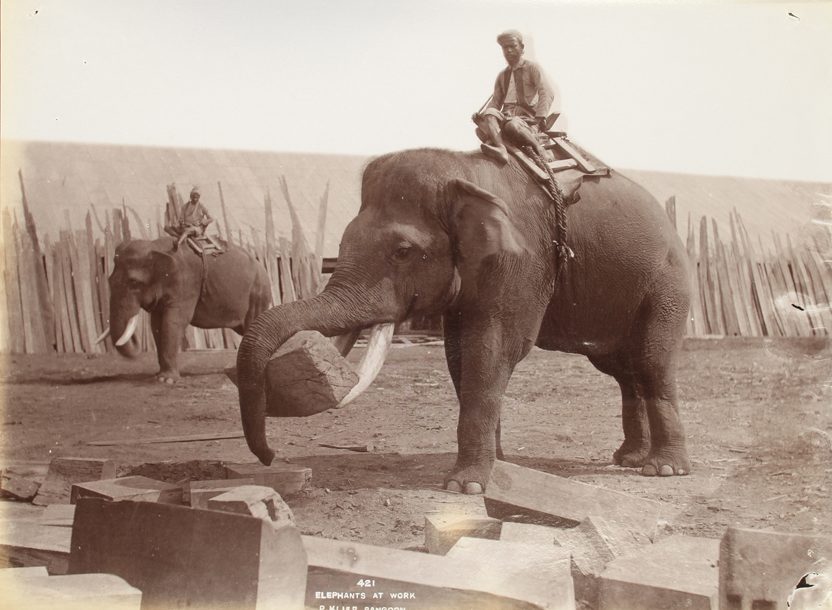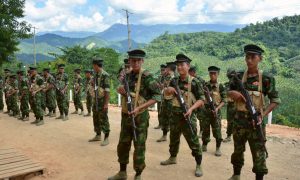Colonial Myanmar was teeming with animals, both wild and domesticated. Yet few histories have devoted close attention to the importance of animals to British colonial rule in Myanmar. Jonathan Saha’s new book, Colonizing Animals: Interspecies Empire in Myanmar (Cambridge UP, 2021), does exactly this. According to Saha, imperialism was an “interspecies affair”.  Colonial empires would have been impossible without the human mobilization and management of various animal species to first conquer, and then to maintain these empires. Saha brings together the emerging field of animal studies with the more established field of postcolonial studies to produce a new history of colonial Myanmar where the relationship between humans and animals is front and centre. In doing so, Saha highlights the importance of the lives of “non-human” animals in how we understand Southeast Asian history.
Colonial empires would have been impossible without the human mobilization and management of various animal species to first conquer, and then to maintain these empires. Saha brings together the emerging field of animal studies with the more established field of postcolonial studies to produce a new history of colonial Myanmar where the relationship between humans and animals is front and centre. In doing so, Saha highlights the importance of the lives of “non-human” animals in how we understand Southeast Asian history.
Patrick Jory teaches Southeast Asian History in the School of Historical and Philosophical Inquiry at the University of Queensland. He can be reached at: [email protected].
 Facebook
Facebook  Twitter
Twitter  Soundcloud
Soundcloud  Youtube
Youtube  Rss
Rss 


